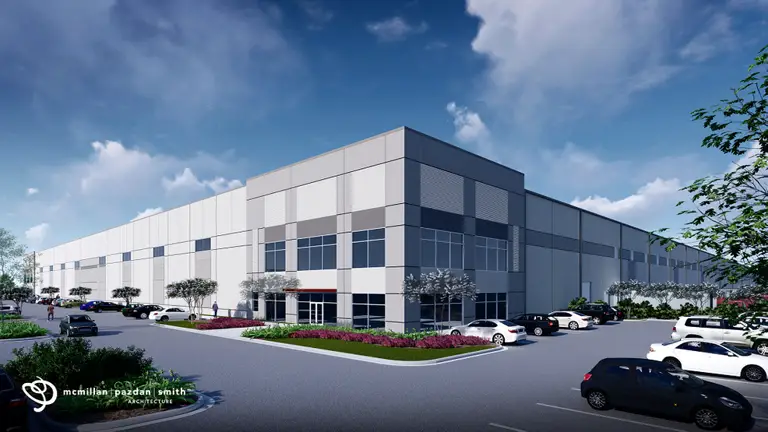Portman Industrial is moving forward with phase II of its Camp Hall commerce park project in Ridgeville, South Carolina. This new phase adds another 1,123,360-sq-ft industrial facility to the three industrial facilities from the previous phase. Although phase I is still ongoing, the developer has already leased over 60% of the available spaces in the buildings.
Portman’s Southeast Regional Manager, John Gaskin said the Camp Hall commerce park would target tenants seeking smaller, single-load facilities. Gaskin believes this would help fill the existing void in the immediate supply of cross-dock logistics facilities. Especially for the ones within the ranges of +/- 500,000-square-feet and +1,000,000-square-feet, which are scarce and highly sought after. The new facility is located next to Volvo Cars’ manufacturing facility.
Also Read Virgin Industrial Park to be developed in Arizona
Development plans for the Camp Hall commerce park
Frampton Construction Company is handling the construction on both phases of the Camp Hall commerce park project. According to the construction firm, the facility will be built using tilt-up concrete wall panels. Additionally, the development will also include the use of structural frame and thermoplastic polyolefin (TPO) roof materials. Tenants will have access to a cross-dock layout with a 40-foot clear height with 215 dock doors. On top of that, the facility provides four drive-in doors, along with 59 car spaces and 851 trailer spaces.
Frampton’s Senior Project Manager, Keith Horton described Camp Hall commerce park as an expertly planned, best-in-class industrial project. Therefore he said, his company was honored to be fully involved in the project’s development. Horton said they were pleased with the progress made so far on the first phase. As a result, their team would carry on with that same momentum throughout Phase II.
Santee Cooper worked in partnership with the South Carolina Department of Commerce to design the Camp Hall commerce project. Other parties that were involved in the process include Berkeley County, Edisto and Berkeley Electric Cooperatives, and South Carolina Power Team. They also worked alongside the Charleston Regional Development Alliance and South Carolina Ports Authority.
